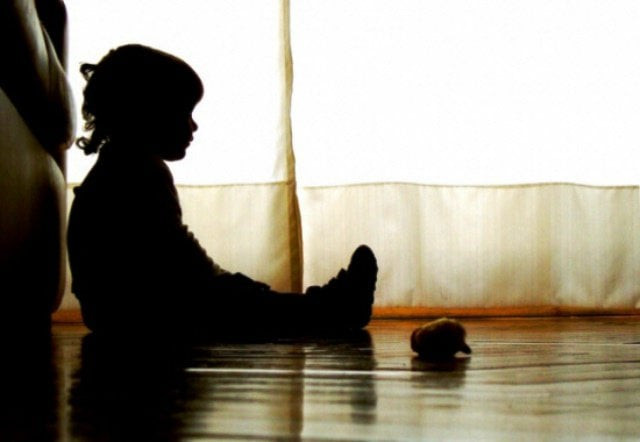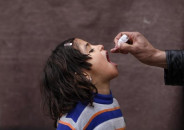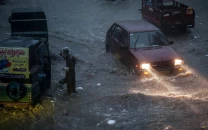Teach them young: Preventing abuse, one child at a time
Sindh govt launches training programme for teachers to empower their charges to protect themselves from sexual abuse

PHOTO: AFP
To this end, the Sindh government has initiated regular training for teachers in public schools with the aim of imparting life-skills based education (LSBE). Under the proposed curriculum, more than 7,000 teachers across Sindh will receive the training, specifically focused on good and bad physical contact, body protection, sex and character discrimination, awareness of the differences between sexes and genders and torture (sexual violence based on power and authority).
Topics like bullying, respect for individual values and religion, caste and colour and gender equality, among others, will also be a part of the curriculum.
For the purpose, the Provincial Institute of Teacher Education (PITE), Sindh Teachers Education Development Authority (STEDA) and a local non-governmental organisation named Ahung have jointly undertaken the task.
Child sexual abuse: Kasur in spotlight yet again
Speaking to The Express Tribune, the executive director of STEDA, Abdul Majeed Bhurt, confirmed that some of the subjects have already been included in the official syllabus of Sindh’s public schools.
“Apart from including the topics in the seventh-grade social studies textbook, they have also been included in the course books of other subjects, including English, Urdu and Sindhi,” Bhurt said.
A comprehensive approach
A detailed overview of the training manual revealed how teachers must create awareness among students about sex-related issues, including how children can save themselves from abuse and how people can misuse power and authority to force a weaker person, particularly children, to engage in undesired and inappropriate physical activity. These include sexual conversations, compelling children to watch pornographic movies or photographs and illicit touching, among others.
The topics also highlight the vulnerability of disabled persons - including both girls and boys - to sexual abuse. A detailed explanation on bad contact includes the feeling of pain or anger when touched, pushing, tickling or inflicting pain.
Impact of population growth
The training handbook also includes a chapter on the impact of population growth on human life which has already been incorporated in the seventh-grade social studies textbook under the topic of population. Accordingly, students are being taught about the disadvantages of adolescent marriages, such as how girls under the age of 18 are not physically and mentally ready for marriage as they are vulnerable to blood deficiencies and other ailments in case of pregnancy.
Difference between gender and sex
Likewise, teachers are being trained to be equipped with knowledge of the difference between gender and sex. Per the handbook, children will be taught that sex defines the difference between men and women based on their reproductive capabilities and other biological traits, whereas gender refers to the different societal responsibility and attributes of man and woman. For instance, men are perceived to be responsible for earning a livelihood while women are deemed responsible for taking care of children and their homes. The new curriculum, however, also states that gender roles constantly evolve and transcend with changing times.
Torture and sexual violence
The training manual further includes a detailed chapter on torture, particularly sexual violence based on power and authority. The handbook details all types of violence, including verbal, physical and mental, explaining how people in positions of power can misuse their authority and sexually exploit those weaker than them, especially children.
What adulthood means
The curriculum also covers topics related to issues of adulthood, including the physical and mental changes that people undergo during adolescence. For the first time, male and female puberty is explained in detail in the form of various stories, with different examples, including that of menstruation.
Respecting diversity
Another very important part of the LSBE curriculum is based on teaching students to respect other individuals, irrespective of their colour, sex, religion, caste and physical attributes.
Innocence lost: 'Punjab police apathy fueling rise in child abuse cases'
Resistance to change
Shedding light on the ongoing training process, a Department of School Education Sindh employee, who spoke on the condition of anonymity, said that while the training manual and the subsequent inclusion of topics in the curriculum has been received positively, teachers have raised objections about certain topics during their training session, terming them ‘too explicit’ and in ‘violation of cultural values.’
“Some teachers were even reluctant to listen to and discuss the topics during their training, while others opined that teaching and discussing these issues with children is extremely difficult,” he said. “However, given the sensitivity of these topics and the events that are happening in the country, most teachers supported the idea and completed their training.”
Published in The Express Tribune, December 22nd, 2019.



















COMMENTS
Comments are moderated and generally will be posted if they are on-topic and not abusive.
For more information, please see our Comments FAQ